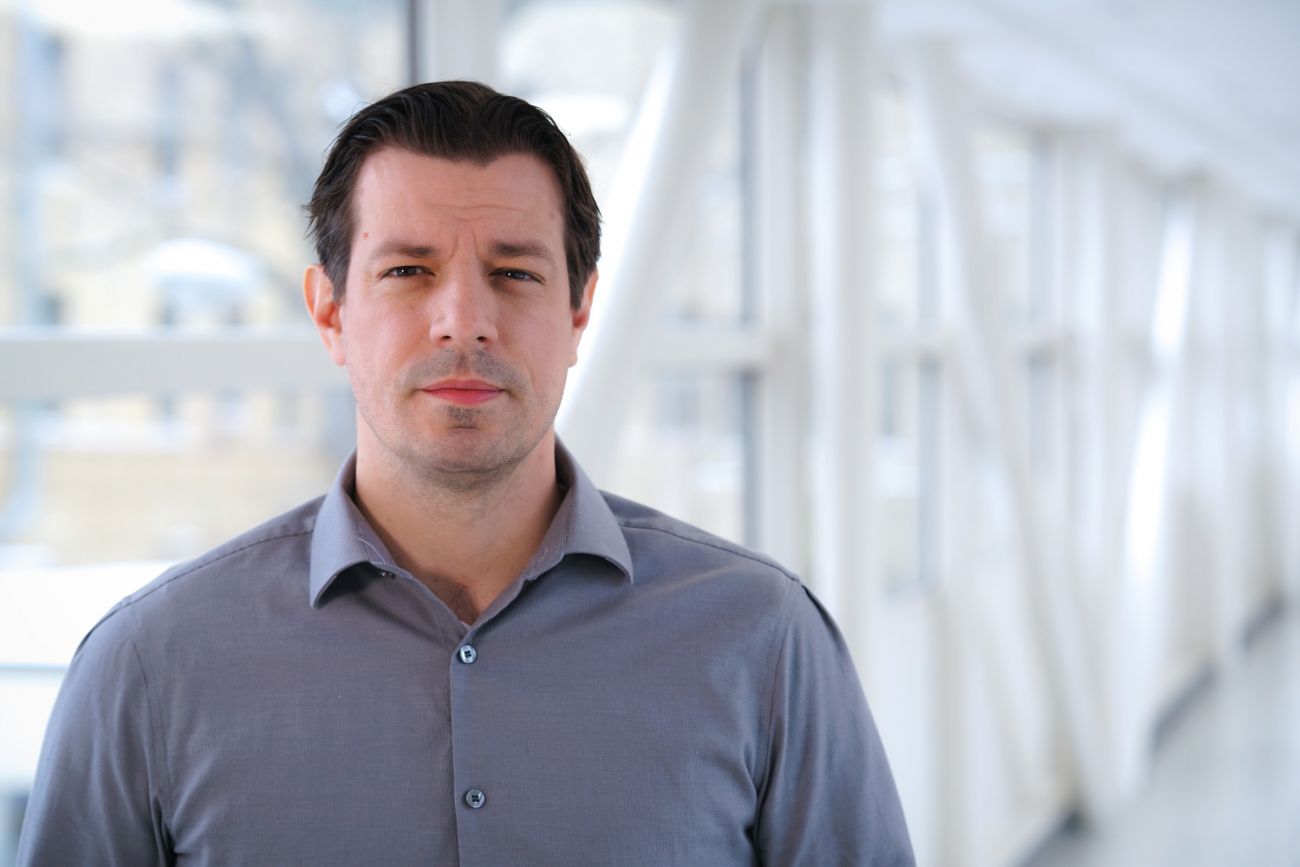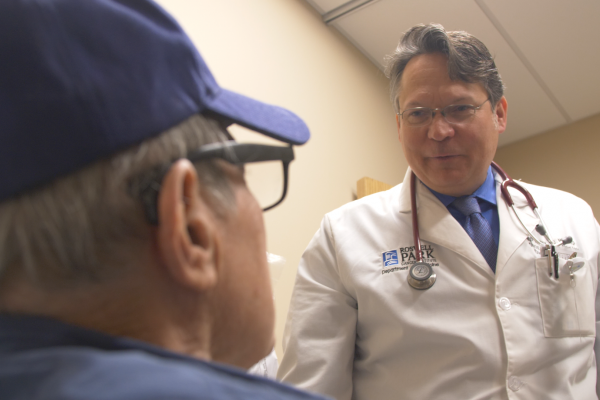Roswell Park Comprehensive Cancer Center researchers have made another step toward personalizing cancer treatment while reducing the toxicity of certain cancer drugs using simple, noninvasive blood tests.
Many of the drugs used to treat cancer have a wide range of unpleasant and unintended side effects, including nausea or loss of appetite, fatigue, anemia, hypertension, skin changes and hair loss. It is sometimes difficult to predict how a patient will react to a given cancer drug; some will respond well and have few complications, while others will experience severe side effects only to see their cancer progress.
One lesser-known side effect of cancer treatment is the production of therapy-induced secretomes, which are proteins produced in response to a cancer drug. Tumor cells secrete such proteins, which can be measured by blood tests to see how a patient is responding to a particular therapy. But most of the studies that test how cancer drugs work involve cancer patients or preclinical cancer models, so less is known about how these drugs affect healthy cells.
Never miss another Cancer Talk blog!
Sign up to receive our monthly Cancer Talk e-newsletter.
Sign up!Using a cancer-free preclinical model, John Ebos, PhD, Assistant Professor of Oncology, Department of Cancer Genetics and Genomics, Department of Medicine, and Department of Pharmacology and Therapeutics (Graduate Program), together with his team of Roswell Park researchers, tested several new-generation cancer drugs designed to target cancer indirectly, such as by cutting off the blood supply to a tumor or activating the immune system’s response to cancer. These drugs included the tyrosine kinase inhibitors sunitinib and axitinib (which are used to treat gastrointestinal, pancreatic, and kidney cancers), crizotinib (used to treat certain types of lung cancer), and various immune checkpoint drugs that are now used to treat a broad array of cancer types.
Remarkably, the research team discovered that healthy cells also produce secretory changes in response to a drug, suggesting that the production of these circulating blood proteins can occur independent of cancer type or stage. This means that these secretomes may represent a program that is activated in the body, or “host,” by the cancer drug itself, regardless of whether tumors are present.
“What’s really interesting is that each one of the drugs that we tested caused protein levels in the blood to change, even without cancer, and each drug had its own unique signature,” says Dr. Ebos, the senior author of the study. “If confirmed in humans, these ‘tumor-independent’ secretions may be used as biomarkers to monitor drug effects in all cancer patients, regardless of cancer type or stage, and perhaps even provide a guide for unexpected collateral damage that these drugs may cause to the body.”
Their study, which was published in the cancer journal Molecular Cancer Therapeutics, may help support the development of “disease-agnostic,” drug-specific blood tests that can be used to establish the most effective dose of a cancer drug or identify a potential source of toxicity or resistance in each patient, regardless of cancer type of stage, thereby optimizing and personalizing cancer treatment.


